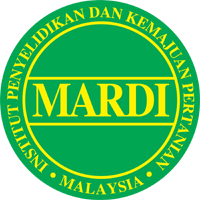S.T. Yong, M. Mardhati1, I.J. Farahiyah, S. Noraini1 and H.K. Wong
Abstract
A 16-week feeding trial was conducted to observe the growth performance of red hybrid tilapia (Oreochromis sp.) fed two levels (10% and 15%) of feather meal, which replaced 92% and 100% of fishmeal in the diets. Also, the water quality parameters in the recirculating water system were determined weekly. The triplicate groups of tilapia were fed twice daily with isoenergetic diets (13.0 MJ/kg) containing 29% digestible protein (isonitrogenous). The fish with an average size of 37 g were reared for 16 weeks in circular polytanks with total volume of 1 m3 in a recirculating water culture system. It is worth highlighting that the weight gain, specific growth rate and feed conversion ratio of red tilapia fed 10% and 15% feather meal were significantly better (p <0.05) than the control (major protein sources from soybean meal, fish meal and corn gluten meal). Apart from that, all the water parameters were within the optimum range of water quality for tilapia growth. Small but significant differences (p <0.05) in pH, water temperature, NH3 and NH4+ were observed between the feather meal fed treatments and the control. This study revealed that up to 15% of feather meal can be included into the fish diet with good growth performance and feed conversion ratio. Moreover, it was found that feather meal can completely replace fishmeal in tilapia diets.
Full text (866 KB)








